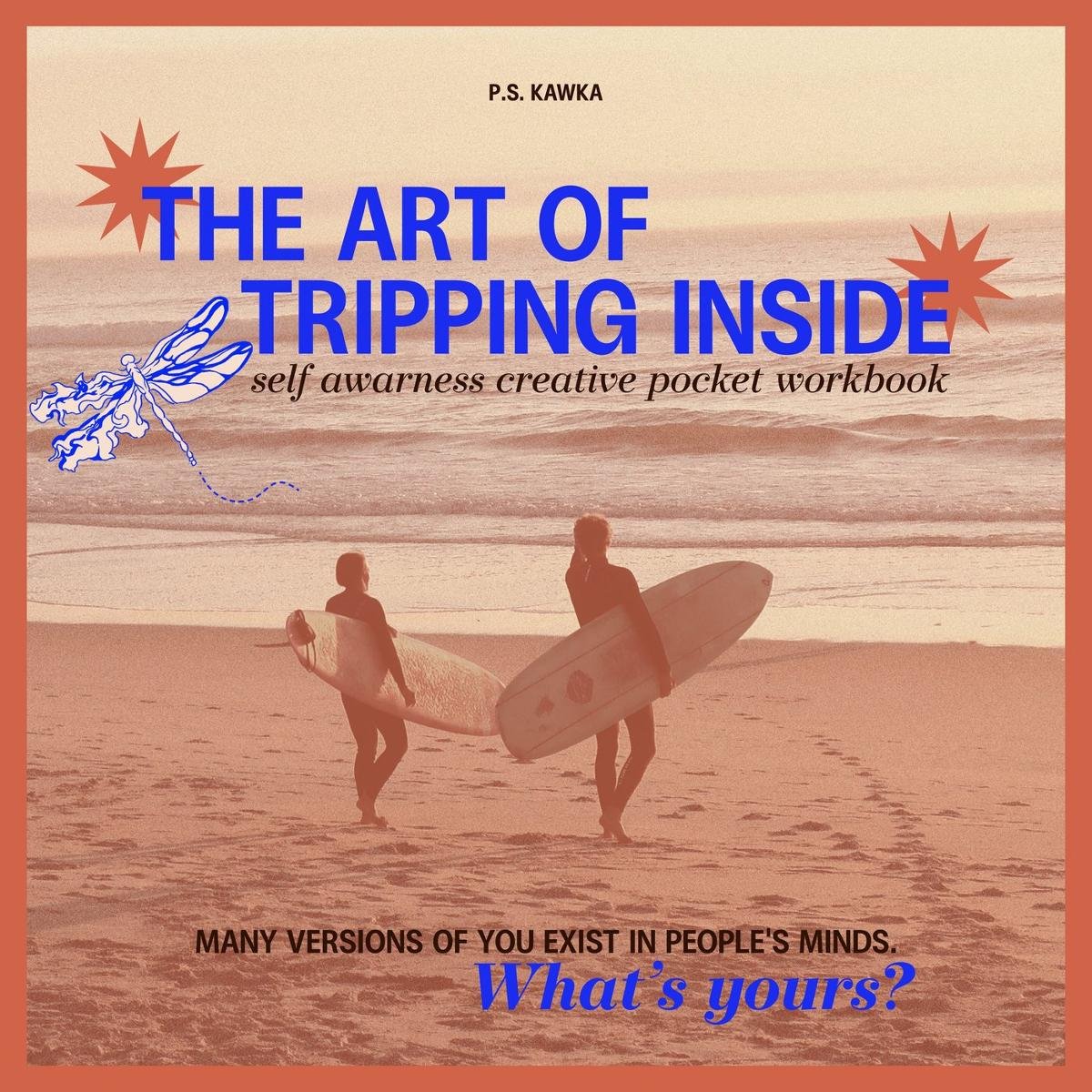theology_of_satanism-eng
| Szczegóły | |
|---|---|
| Tytuł | theology_of_satanism-eng |
| Rozszerzenie: | |
theology_of_satanism-eng PDF - Pobierz:
Pobierz PDF
theology_of_satanism-eng - podejrzyj 20 pierwszych stron:
Strona 1
Theology of Satanism
(Translated by Scarabaeus)
The ways of God are inscrutable ? Oh, but not for me, I know Him too
well. As well as He knows me. If our paths once get crossed, He,
having seen me from afar with His sharp eye, will turn away in hurry
out of fear before my deathly sting with three points of steel – such is
my tongue, my natural weapon !
Lautreamont, "Maldoror"
World-view is the most universal system of concepts about the world and one’s place in it.
Satanism, being a world-view, has its specific attitude for different aspects of the reality. In many
cases the Satanists’ attitude coincides with the common attitude of reasonable people, say, in issues
of society it refers to euthanasia, birth control, social morals etc. But there are also certain
differences, of course, - otherwise the Satanism would not be an outstanding view on world. One of
such examples is the attitude towards God. (Strictly speaking, “god” must be written with small letters – it is
either name of a kind, or a “position”. In this article I use the spelling of this name with capital letter where in the
context the word “god” cannot be replaced by a concrete name, i.e. where “God” is namely a metaphysical concept.)
This question is way more complex than it seems a prima facie: firstly, “God” is far not an
unequivocal concept, secondly – Satanism is a-dogmatic, and Satanists might perceive God (as well
as Satan) very differently. Nevertheless some common regularities indeed can be found.
One might ask, why should we consider this question, especially when we keep in mind that
the majority of modern Satanists are atheists ? (More precisely, most of Satanists I know are atheists, - but I
haven’t asked the whole of the world. Besides, if I see that my interlocutor is a Satanist, I not always ask him about
atheism, if it does not refer to the topic of the talk. With all that, we should take into account that from the theoretical
viewpoint atheism interests not everyone and is often confused with the anti-theism of such a kind like “belief in
absence of god”, and it is also claimed with no sufficient reason, that atheist cannot be an occultists and so on, therefore
the refusal to name oneself atheist might mean only a skeptical disagreement with the mentioned dogmas.) Because
God is a very ancient idea, and turning away from it with seeming lack of interest most often means
only the intellectual inability to analyze the problem at an adequate level. Surely, to claim “there is
no god” and to refuse to reason further on this topic is much easier than to develop one’s own
universal philosophical attitude .
Here I quote my FAQ (version 3.05 from the 30th of November XXXVII A.S.):
45. What will Satanist do when he knows that god exists ? Will he repent his
sins in order to be saved ?
The only excuse for god is that he does not exist.
Stendhal
At first glance, the question seems very hard to answer, for the prideful answer
“I will go to the fiery Gehenna” looks rather strange, whereas the answer “I will
immediately repent then” will cause a natural reaction of gomerical laughter in the
sense “and why do you call yourself Satanist now ?” But the answer “I believe
that there is no god!” will be accepted not as answer but as pretext, which in fact
it is.[…] Everything is simple, though: those who are posers, naturally, will
repent. The question whether it truly saves them – is another story. But Satanists
have not such a variant, and not because they are so foolish and mentally ill. The
very essence of Satanist cannot coexist with divine goodness or how else it can be
named. Not formal repentance is demanded, but the sincere repentance – and this
is namely impossible, because the conditions offered are physically (or in any
other way) unacceptable. The situation is nearly such: you will either be killed or
beheaded, devoid of arms and legs, sight, hearing, speech etc, but alive. With all
that, you must sincerely wish to “live” in this way. But you know, even if not
1
Strona 2
death but eternal torture would be the alternative, I cannot sincerely wish such a
continuation of existence (which I cannot call life).
But where we rule by our rights - the laws of god and humans are not powerful,
and never will the World see one of us in chains.
Only in purple,
or in crimson.
That is the End of each Beast, who shoulders the responsibility for all
manifestations of Evil, revolting in the fleshes of everything dwelling on the earth
V. Scavr, "Maledictum"
This answer is namely universal and accords to the Satanism wholly, regardless the concrete
perception of a Satanist. And the attitude of Satanism towards God is the reason why it is
impossible to wish the life with God.
Firstly let’s consider what we mean namely by God here.
First of all, we should mention, that in this article we do not consider pagan gods, regardless
the form of their existence (or perception). Just because, in fact, all the pagan gods (And in the context
it does not matter whether one perceives pagan gods as personalities or merely as personifications of certain natural
forces and so on.) have both “light” and “dark” sides, and they are personifications of Forces of
Nature, i.e. it has nothing to do with Satanism per se, ergo – it cannot be opposed to Satanism. We
are rather interested in the standard connection “Satan – the adversary of God”. However the
question “What should we comprehend by God ?” remains. In advance we should clarify, that this
concept must not be reduced to the Christian interpretation, it is much broader. Ruslan Khazarzar in
his work “The skeptical view on existence and non-existence of God” pointed out the following
properties:
First of all we should agree that the word “God” means:
• Omniperfect and eternal, that is to say omnireal entity (το ον το κρατιστον,
ens realissimum);
• The entity which created all things, or, more precisely – the entity which is the
primary source and the primary cause for creation
(προαρχη, το ον το πρωτισταιτιον, ens originarium, ens archontissimum);
• The reasonable entity, personality (νους, το ον το διανοιον, persona, summa
intelligentia).
Thus, purifying the concept of God from particular properties and leaving only
the necessary, universal predicates, we involuntarily come to the so called rational
theology (theologia rationalis) and even to the transcendental theology, for
“necessity”, “infinity”, “unity”, “existence beyond this world”, “eternity without
temporal conditions”, “omnipresence without spatial conditions”, “omnipotence”
et cetera – all those are purely transcendental predicates.
But this also somewhat narrows the God-concept, which is true for mono-religions. Say, why
should we perceive God namely as personality ? One might comprehend this term for example as
Power in metaphysical or occult sense, whereas the existence of the corresponding archetype (Here
we mean namely the archetype of mono-god, God-father in general case. See C.G.Jung, “The Answer To Job” as a
special example based on Christian material.) is quite apparent (as well as the existence of the egregor). In
the same way, it is indifferent for Satanism, whether God is the primary cause or the demiurge of
this world, the only thing which matters is that God manifests at the present in some form. And the
opinion about “omniperfection and eternity” does not matter at all – Hell is no less perfect, but its
perfection is different, and no less eternal, if we speak in such terms.
Thus, Satan is opposed by “mono-god”, which can appear in whatever form – from the
abstract idea to the personified being. The universality of the approach is not invented by the
Satanism, also marquis de Sade wrote (“Philosophy in bedroom”):
2
Strona 3
If it’s proved that this God, whom fools consider the creator, the only maker of
everything around us, is but a perversion of human mind, just a spook created at
the moment when the mind comes to cul-de-sac, if it’s proved that the existence
of this God is impossible and that Nature dwells in permanent motion, receiving
from itself what idiots ascribe to God’s generosity: if we assume that there exists
this feeble entity, then it would be surely the most ridiculous creature of all,
because it would turn out to be useful only once, and after that for millions of ages
it would dwell in the contemptible inactivity and lack of motion. If we assume
that it did exist as described by religions, then it would be the vilest entity,
because it would be God, permitting evil on earth, whereas his might could
prevent that evil.
As you see, marquis is against God in any case. Alike Nietzsche, who claimed that “God is
dead”, but nevertheless wrote in his last book “The Anti-Christ”:
The Christian concept of god is the god of the ill, god-spider, god-spirit – one
of the most corrupted ones, who only had been faced on Earth; probably it itself
shows that lowest level, to which the kind of god degrades. After the degradation,
the god became a contradiction – objection against life instead of its
transformation, instead of the eternal Yeah spoken to it ! In god there had been
proclaimed the hostility towards life, towards nature, towards will for life ! God is
the formula of slander on this world, the formula of deceit about “the world
beyond” ! In god the Nothing was deified, the will for Nothing – became sacred.
It is not at all a contradiction of the kind “does god exist or not ?”, but namely the universal
resistance to God, no matter in which form it appears.
And if God suddenly appears once, then atheists will vanish as a class, but skeptics will
remain anyway. And Satanists will remain Satanists – opposing the God.
Aut vincere aut mori.
The first remark. In this article I use the term “monotheistic God”. It does not necessarily
mean belonging to the class of gods of the widespread monotheistic religions. In this case God is
even not necessarily θεος, it might be an entity, Force, Idea, etc., - the determining factor is the
aspiration to domination over the Universe (in the metaphysical plane) with elimination of all the
opposition, Absolute Order. In the cases of both Absolute Chaos and Absolute Order everyone is
equal with each other by energies. But in the Chaos all the components are free and have maximal
possible energy, which one can gain in the system; in the Order everyone stands in his fixed place
and has no energy. Absolute Order is the Absolute Zero. Consisting of particular zeros...
The second remark. Acceptance of the entity “Monotheistic God” automatically means that it
is Universum. I.e. in any theology, that accepts ens realissimum, Satan and Jehovah – are merely
the manifestations of God-Universum, and nothing can oppose God-Universum itself. It is All.
However it is still not clear (at least to Satanists), why should we call Universum namely God ?
This question I consider, but it is somewhat “pulled along” the article, since its actual topic is the
oppositions of God and Satan, i.e. the bi-substantiality is assumed; in this article God is NOT
Universum. Where appears Other – there One already is not present.
Strictly speaking, there exist two sets of ontological systems: existential (eleats, Plato, Kant,
Schopenhauer) and “becoming” (Heraclyte, Aristotle, Hegel). In the first one, there is Universum,
but God and Satan are merely its manifestations (objectivation). In the second one Universum is not
present. It is only possible – always possible, but never real.
3
Strona 4
The scheme, which appears in Princeps Omnium, does not belong to the ontological – in
Satanism it is indifferent what is Universum. This article is dedicated exactly to the illustration of
universality of the satanic approach.
The third remark. Such a question might arise: “Why should we use the models of the reality,
in which God appears in some form ?” It’s simple: these models exist and most of people (at least in
Russia) live by them. And since one has to live among humans, then it is very useful for him to
know them thoroughly.
Besides, to claim one’s 100% inhumanity is baseless, and for elimination of all the humane
components within oneself one should know what they are and what they exert influence on.
The religious aspect
The idea of God is the only deceit, which I cannot forgive to
humankind.
Marquis de Sade
Probably it is the simplest aspect of the considered topic. I.A. Kryvelev in his work “About
proofs of god’s existence” wrote: “I will not speak today about god in his biblical sense. It is not
difficult at all to prove that there does not exist such a god described by the Old Testament, that god
by whose image and similarity man was created, that god, who takes a walk in evening cool by the
Eden, who sits, when cannot lie down, walks, and occupies some place in space… About such a
god there is not much to be spoken.” I agree with Kryvelev: even from a purely atheistic viewpoint
the criticism of existence of God by means of analysis of contradictions in the Bible and so on is
useful only as the material for the propaganda of the vulgar atheism of a kind “there is no god”. In
fact, the question is more complex: in such a way only the absence of God of a certain religion can
be proved, and with the condition of using the a-priori assumption “everything written in holy
books is the attempt to describe the reality”. I.e. one might assume “what’s described in holy books
is true”, but not an intentional deceit, folklore or hallucination of a drug-taker. Then, when having
found the inner contradictions in these books, we might reject the whole of the assumption as
contradictory within itself.
Say, in the Bible the birth of Christ is fixed to the two events: the reign of Herod and the
census of population. Herod had died several years before our era (which counts from “the birth of
Christ”), whereas the census took place several years later. (This is quite apparent, but there are many
opinions on this issue. See also R.Khazarzar “The Human Son”)
However, if we don’t base our considerations on the literary formalism, which nowadays only
the religious fanatics do, the situations gets more complicated. Some Christians recognize the
situation and attempt to reform their faith. John Shelby Spong (a bishop of an American church) “The
recalling to the new reformation”:
Theism, as a method of definition of God, is dead. Thus, nowadays the
theological considerations about God are mostly senseless. It is necessary to find a
new way to speak about God. … The view, according to which the cross is the
sacrifice for the sins of the world, is a barbarian idea, based on some primitive
concepts of God, and it must be rejected. …All human beings bear the image of
God…
As you see, rejecting practically all the Christian dogmas (in that article there are even more
assertions, than in the quoted fragment), Spong nevertheless believes that God exists, and that God
is necessary – it is needed only to find the means of expression, that correspond the modernity.
I stress namely this point – the point is not in certain form of God’s manifestation, but in the
resistance to its essence.
And the essence of God in religion, i.e. in monotheism, was quoted in the preface.
4
Strona 5
Properly speaking, the lack of proofs of God’s existence (don’t forget, we consider the
religious aspect) in no way means that he does not exists. Another thing, there are no meaningful
reasons to introduce in one’s world-view the axiom “God exists”. (But there are many senseless, non-
intellectual, psychological reasons, though. And it depends directly on one’s world-view, what reasons one should be
guided by – by the realized, following from the personal demands, or by the “comfortable”, “accepted”, allowing to get
rid of personal responsibility, verbalized by the phrases like “how not to believe ?“, “everyone believes in something”,
“there has to be something” and so on).
Thus, if god does not exists, then the religious aspect is simply absent, which does not cancel
the influence of other aspects: semiotic symbol in particular case might exist also without
denotation.
If he exists, then there are a lot of variants: it does not mean that God appears namely in that
image, in which church-men represent him (and keep in mind that there are over two thousands of
Christian confessions only). Thus, the variant of “fiery inferno” - is but one of the infinite set, and
it has no facts, pointing at a relatively larger credibility. Not to speak about the fact, that the myth
about Satan’s revolt in Christianity is represented from only one side, very prejudiced.
But the point is not in the comparison of probabilities (especially if to take into account their
incalculability), but namely that Satanists by definition lack beata stultitia, necessary for the
harmony with God. Just because of this, Satanist always opposes God – otherwise he will stop
being Satanist, stop his own existence. Here I quote my work written in co-authorship with Den-M:
The inner principles allow to preserve the integrity of personality... Does the
reader often wishes to take a breath of cyanides or take a bathing in an acid ?
What –such questions even don’t occur ? And the same is with a person with
formed inner principles – to him just doesn’t occur to cast them aside for a while
– be it a situation with a tank or a grenade, or just a banal commercial deal. Basic
principles of personality are not a “one-time suit”, they are not shuffled in
accordance with the situation, they can change/develop – but only as a result of
the conscious, logically based and consistent work in the personal development.
And the initiating cause of such a work never comes from the “outside” – it is the
result of personal aspiration to development.
The question of FAQ №45, also referring directly to the topic, was quoted above.
Even the god-seer Plotin cannot find words to describe such a state. Here the
man as if becomes peace and appears himself as the contemplation of eternal
light. It is … the merging with the contemplated, indescribable vision, nirvana. It
is not even a vision, but an ecstasy, solitude, renunciation, peace, some special
kind of spiritual enthusiasm. The ecstasy of this is Plotin’s invention.
I. Granin, "What are ethics, culture, religion?"
Here it can be apparently seen that Satanist has just nothing to do in Paradise: the inactivity of
nirvana, fanaticism of ecstasy, renunciation, rest instead of action – all that contradicts the satanic
world-view. It was always funny, by the way, to consider the attitude of believers towards Paradise:
the question “what to do there ?” just does not interest them. If Muslims are yet ready to drink and
to copulate for eternity (and they cannot imagine that this might overdo them), then Christians are
not going to do anything at all – only to dwell in serenity at the throne of their god.
Satanism immanently contains creativity and action, which in no way accords Die absolute
Ordnung of God. I repeat: namely therefore Satanist opposes God - this is the fight for one’s life,
for existence of one’s Personality.
To the conclusion I should mention pantheism and deism. Pantheism, properly speaking, is
not theism, and therefore it opposes Satanism in no greater measure than paganism does. As for
deism, yet the ancient ones told: de non apparentibus et non existentibus eadem est ratio.
5
Strona 6
Remark. Surely, if God exists namely as ens realissimum, then we get the same fatalism as in
the materialistic determinism (See also: R.Khazarzar “Skeptical view on dialectical materialism”), but only
instead of the materialistic universal causality appears “God’s will”. The main antinomy of this
question occurs because in the case of existence of the all-free entity, the human ontologically
cannot have his own freedom (namely about this wrote Augustin). The free will of human together
with all-free will of God – is οξυµωρον. Nothing happens without God’s will. Yes, scholastics
claim that the free will of the human – is in accordance with God’s will, but the antinomy of such a
position cannot be solved. This problem in its whole complexity was considered by Kant only, as I
know. But he found no solution.
In general, such a variant of religious perception of God leads to such a situation as if Master
of Puppets plays the spectacle before himself by his own project and no more than this. However no
ground for such a sad scenario is observed in the reality.
Prophylactics of objections
Intellectuals belong to two categories: some worship intellect, others
use it.
H. Chesterton
Let’s distract the reader a bit from the main topic for the prophylactics of a standard
misunderstanding. The objection I predict can be more illustratively demonstrated on the example
of my old statement:
The Universe is immoral – in the nature there exist neither Good nor Evil. But
if anyone starts to insist that there exists some Good, then I side with Evil,
opposing him; his faint efforts disturb the harmony of Universe.
I heard objections like this: “So what, if I denote e.g. cognition as “Good”, then you will side
with ignorance?”.
Such a sentence shows only the inability of the one who asks to think systematically, taking
into account all the aspects of the reality (and often – also the incompetence in the particular fields).
Although yet L. Wittgenstein wrote that “Only facts can express meanings; the class of names
cannot.”( "Logical-philosophical tract", 3.142), this does not mean that names/denotations have no
meaning and are completely mutually replaceable, this means that the denotation is meaningful only
because that, which is denoted, makes sense. Indeed, Wittgenstein notes: “We create images of facts
for ourselves. … Image depicts what it depicts, regardless its truth or falsehood, via the form of the
reflection.” (op.cit., 2.1, 2.22)
The unconsciousness psychology unequivocally shows that many words are not merely
conditional identifiers, but also some subconscious associations on the archetypes level are fixed on
them. The perception of archetypes by human is always numinous; and in consequence of the
environmental factor ψυχη gets formed with many filters, which disturb the adequate perception of
the reality, including such ones, with which there exist something “a-priori good” and “a-priori
evil”, therefore the conscious comprehension of many symbols is originally distorted. In such cases
often happens the ousting, i.e. elimination of unacceptable aspirations and experiences from the
consciousness.
However the perception of the archetype, symbol etc., does not have to be commonly
accepted (Concerning symbols, it can be especially apparently shown for the swastika after the WW2, when one of
the most ancient symbols turned to “the symbol of fascism” as a result of the purposeful propaganda.) The Watcher,
№4 (sept. 1990):
The following description of Devil, offered by Paul Carus, the author of “The
History of Devil”, perfectly characterizes the nature of Satan as it’s
comprehended by modern thinking Satanists: “Devil is the cosmic rebel,
6
Strona 7
revolutionist in the empire of tyrant, opposition to monotony, dissonance in the
universal harmony, exclusion from the rule, passionate thirst for self-expression,
living contradiction to the will of God who dictates a certain type of behavior to
everyone; he breaks the monotony, which would have filled up the cosmic
spheres, if every atom in unconscious righteousness and in virtuous obedience
slavishly followed the dictated course.”
If we change the meanings of words “table” and “chair” with each other, then nothing will get
disturbed in the perception (Disturbances might take place only during communication, when all the participants
are not informed about the certain change of names. During communications they interchange not by objects but by
their denotations, therefore certain conventions concerning denotations are quite necessary for successful
communication), it will be no more than change of a conditional identifier, of a pointer at the function.
But if we interchange the mutually opposite couple of arch-typical terms, then the perception of the
reality will change. One cannot simply replace “Good” by “Evil”, leaving all the attributes
unchanged – it is not occasional that it’s usually said that they make good, but create evil. In a
similar case, by the way, there appears the devil-worship and similar turning the reality upside
down. However Satanism is not turning the reality upside down, but step aside from the humane
perception of the reality.
Hell as an idea, born of Chaos, pierces each of the myriad of facets of Its
content, determines the center of Chaos and directs Its evolution.
It is beyond any attempts of simplification and constant estimations, it will
never be contained within any bound. Cognition of it is possible only through the
empirical comprehension of its principles, through containing them deep inside,
through conquering self-restriction, - and through becoming the part of it.
...it is a different perception of Universe, inherent in our tribe. It is the path,
shrouded by impenetrable Darkness upon all the maps that existed before –
breakthrough of boundaries, beyond which stretch the territories, that belong to
Chaos. It is an untamable might rushing out of It.
Inferion
Satan is not another God, but the anti-God. In both the psychological an in mythological planes,
and in the occult plane God influence on the Universum (Here – by the scheme, represented in Princeps
Omnium. See the second note in the end of introductory chapter).in such a way, that for Satan there is left
nothing else than to act contra Dei.
Therefore inconsistent is the thesis, which I decided to confute for the purpose of
prophylactics: that Satanists simply replace “good God and bad Satan” by “bad God and good
Satan”. Such an insinuation only shows the incompetence in psychology as well as in occult.
A real attitude of Satan towards the “divine throne” is described very well in “The Revolt of
Angels” by Anatole France:
Now, thanks to us, the god of old is dispossessed of his terrestrial empire, and every
thinking being on this globe disdains him or knows him not. But what matter that men should be
no longer submissive to Ialdabaoth if the spirit of Ialdabaoth is still in them; if they, like him, are
jealous, violent, quarrelsome, and greedy, and the foes of the arts and of beauty? What matter
that they have rejected the ferocious Demiurge, if they do not hearken to the friendly demons
who teach all truths; to Dionysus, Apollo, and the Muses? As to ourselves, celestial spirits,
sublime demons, we have destroyed Ialdabaoth, our Tyrant, if in ourselves we have destroyed
Ignorance and Fear."
And Satan, turning to the gardener, said:
"Nectaire, you fought with me before the birth of the world. We were conquered because we
failed to understand that Victory is a Spirit, and that it is in ourselves and in ourselves alone that we
must attack and destroy Ialdabaoth."
7
Strona 8
The philosophical aspect
Dogma is an attempt to create a stick of one end.
D. Rudyi
I am not going to speak here about the ontological, cosmological and teleological “proofs” of
god’s existence, about Pascal’s bet, Descartes’ arguments on the existence of God, the categorical
imperative of I.Kant et cetera. I completely agree to the article “Skeptical view on existence and
non-existence of God” by R.Khazarzar, where it was shown that "There remains one of the two
choices: either to put aside metaphysics and not to consider theological issues at all, which natural
science does, or to speak about existence or non-existence of God only on the level of hypothesis
(υποθεσις) or faith (πιστις). Of course, there is also the third, radical, way of positivism – to declare
metaphysical questions as false and senseless, but the metaphysical questions themselves won’t stop
to exist then.”
The attitude towards God in Satanism does not depend upon his presence or absence at all.
Once I stated this so: “Concerning the existence of the one god. My position is neutral: whether he
exists or not – I am against anyway.”
In the philosophical plane, keeping in mind the context, first of all the concept of God as
Absolute is important.
Firstly let’s recall the well-known reasoning of A.Schopenhauer ("New aphorisms”, 96):
The word absolute, taken itself, is something quite senseless. For it is –
adjective, i.e. the denotation of a predicate , whereas predicate ought to refer to
some object. But the law of foundation, an undisputed law, states, that each object
is in a necessary connection with some other object; whereas the predicate
absolute expresses nothing else than denial of connection with anything; it
contradicts any object, - consequently, this predicate cannot be referred to any
object, for otherwise the latter would be annihilated. Since subject is not an
object, i.e. it is not cognizable, no predicate can be ascribed to it, -- therefore, the
predicate absolute cannot be ascribed to it, either.
Short, sharp and clear. But this does not exhaust the issue – it’s quite logical, that God, since
it is transcendent and transcendental by definition, simply cannot be expressed in our usual terms,
and then “Absolute” – is not a predicate, but a conditional denotation of the “superior unknowable”.
And as it had been mentioned not once, it should not be comprehended necessarily as a
personality. The first one who introduced the impersonal principle to philosophy was probably
Anaximandres (The Milete school, VI century B. C.). Due to the incompleteness of the information
which remained after him it is difficult to give a full definition to his term “aiperon”, but we can say
that it is something immortal, boundless and infinite, but, with all that, not bearing any
mythological meaning. It was already an abstract mental concept about the primary source of the
world. Lao Tze wrote “Tao Te Cing” approximately in the same period too, but the concept of tao
originally was postulated as non-cognizable in principle, therefore I don’t consider it here – what
interests me is the attempts to comprehend Universum, but not to justify refusal from the possibility
to do so.
Heraclyte the Dark (the middle of IV – the beginning of V century B. C.) introduce into
philosophy the concept of Λογος. Later, Christians took this term without comprehension of its
meaning and stupidly vulgarized to merely “Word”, although list of its meaning in a dictionary
takes almost a complete page in small type. Heraclyte’s Λογος is some abstract universal law,
which rules the world and people, the whole of the Universe.
However the difference between Λογος and the monotheistic Absolute is obvious – according
to Heraclyte, the world is woven of contraries, which are in permanent fight with each other,
whereas the monotheistic God rules alone, all the rest happens either by his will or by his
8
Strona 9
permission (it is such a term which means that God himself does not create evil, but allows it to happen. And please
don’t remind me that in monotheism everything comes from God – I know it myself. A para-consistent logic, you
know…); further – in Λογος it is immanently inherent the principle of total inconstancy,
development, -- whereas the monotheistic God is always conservator, he tries to keep the world
unchanged (an apparent example: the world flood, when people started to develop in a way different from what
Jehovah wished) (this is again quite regardless whether he is a demiurge or not); as the third principle,
Heraclyte pointed out relativity (Strictly speaking, Heraclyte did not separate this thought in a sharp form, but
many of his statements point at this unequivocally, for example: “Sea is the water purest and dirtiest: for fishes –
drinkable and saving, for people undrinkable and deathly”), whereas God always pretend on the Absolute
Truth.
Thus, if God is not Absolute himself, then he at least pretend on knowledge (also the
personification by himself) of some Absolute Truth. In the case of God as idea everything gets
reduced to delirium at all: a certain human idea is declared as Truth a priori. A.Einstein was quite
right:
Infinite are only Universe and human stupidity; while concerning the infinity of
the first one I have some doubts.
Resume: in the philosophical plane God first of all pretend on Absolute Truth.
Absolute categories as some “concrete knowledge” are senseless because of the fundamental
properties of our Universe. Infinity is unreachable by the finite measures, therefore “completely” it
can be neither conceived nor reached (See as illustrations aporias of Zenon. Note: often can be heard such
claims like “aporias are solved in the differential calculus” and so on. Here it’s not a right place to explain the delirious
essence of such claims, thus I make only a prophylactic remark: not to forget that mathematics are but abstract concepts,
and not a direct perception at all). It can be only replaced by something concrete-conceivable – some
symbol, description, model and so on. But this will be already not Absolute Knowledge, but its
“concrete substitute”, which cast aside something unnecessary now, and therefore – cast aside the
infinity, cast aside Absolute itself, and turned thus to merely a “particular truth”. Which might turn
to a lie, when the initial assumptions have been altered or when in this infinity there has been
discovered something contradicting it. Just because the infinity might contain everything…
Thus, any pretension of such kind in the philosophical plane is either attempt of insolent
deceit or just inability to think clearly.
Another philosophical aspect, which might be taken as a consequence from the pretension
described above, is the reducing of all by the principle “all are equal before God”, i.e. a priori there
is introduced a universal (absolute) scale, which is just senseless, for the reasons stated above.
With all that, one loses one’s own essence, one’s own personality; it is de facto offered to
God. The individual differences get decreased to the level of “small delta”, and namely the
belonging to “Truth” is declared as the main point. But in order to remain oneself, one has to differ
from the standard. C.G. Jung, "Septem sermons ad mortuos":
Our essence is the distinction. But when we aren’t loyal to that essence, then we
distinguish oneself not properly.
Therefore we must create the distinction of qualities.
You will ask: So what bad will happen if not to distinguish oneself ?
Not distinguishing, we go outside our essence… and descend to the
indistinquishability,… We, consequently, will die in the same measure as we stop
distinguishing. Because of this the natural aspiration of Creation (The text was
stylized as Gnostics’ work. “creation” is not at all “god’s creation”, but namely Creation of
oneself, self-perfection.) is directed towards the distinguishability against the
primordial dangerous equanimity. The name of that aspiration is prinzipium
individuationis (This comes either from Jung or from his editor). That principle is the
essence of Creation. That is wherefrom you might see why non-distinction and
non-distinguishing are a great danger for Creation.
9
Strona 10
The next aspect of the philosophical perception (again it might be taken as consequence from
the previous one) is leading of all the thoughts towards God, and rejection of the possibility to get
along well without him – how is it, when Truth is in him?! This aspect is very close to the
psychological concept of worship, necessity of God-Father, who has the right to punish for
disobedience, but, with all that, he is the measure of all things, the Great Ruler or the Protector from
the Reality – depending on the individual peculiarities of perception.
It is quite clear that this is incompatible with Satanism, which stands on the Path of
independent gaining of knowledge; whereas the fact, that knowledge is incompatible with faith,
including also “Truth”, is elementarily understandable. By the way, K.H.Jung, "Mysterium
Coniuctionis", §626: "..the gods of Hell might be connected to brain as the throne of consciousness
and thinking, for consciousness leads to the godless existence, because it tears the human being
apart from the divine [unconscious] complex”.
All that is possible to do – You can do yourself.
All that is worth doing – You can do yourself.
You yourself are the source of everything.
Zergen, "The manifest of freedom"
Well at last the philosophical perception of God inevitably leads to the anthropocentricity of
the philosophy (This thesis could be referred to the psychological section as well). It is not a consequence of
“the creation of man by the image and the similarity of God”, but on the contrary – the creation of
God (or perception of him) is inevitably anthropomorphic, if it is the human perception. The ground
to this is the projection as universal way to “think instead someone”, in this certain case – an
attempt of man to imagine God, to estimate – “how God realizes this and that”. Thus human beings
drive themselves into the trap of their own concepts; and even the most advanced ones among them,
remaining in the kinship with God, allowing him to penetrate to ψυχη, bound themselves by borders
of the human. Of the all too human, as the philosopher wrote…
Strictly speaking, “human” is denied by all the concepts which deal with the
other side, only insignificant details differ. The point of the idea was best of all
expressed by Nietzsche: “Human is what ought to be overcome”. ... It is
impossible to have hated human within oneself, not denying the most of one’s life
experience, not tearing oneself away from the so called “roots”. These roots are
but lasts, a result of the criminal conspiracy of enraged two-legged leeches, who
seriously consider themselves the kings of the world, although these creatures
have no mastery even over themselves, not to speak about the environment. It’s
just another confirmation of the fact that human is namely the creature who must
be exiled, just as some folks exile “demons”…
E.Reitel, "Infernal text: under the black banner of freedom "
Thus, in the philosophical plane God personifies the a-priori faith, pretension on lack of
changes, and also anthropocentricity. All that is not only incompatible with Satanism, but even
opposes it straightly.
The objection might arise here: all that is clear, but only if we base our considerations on God
in the comprehension of rational theology; however by God one may comprehend just reality,
substance, primary cause – as well as any “super-idea”, whose part we are. Unwillingness to submit
to it is the refusal from one’s own will, but not an indulgence to it – just recall Schopenhauer’s
ethics. In this case the division to “light and “dark” is very conditional: this is the division of the
same substance by its manifestations.
The very recognition of the substance leads to the form close enough to theology. What’s the
difference – whether the cause of the world is self-causal matter or some impersonal cause ? No
difference. There is no difference between materialism and pan-logistics at all, besides the
10
Strona 11
terminological difference. The difference between materialism and deism is in the point where to
break the regressive chain. Essentially, (near-) theological doctrine begins where take place
attempts to find the unity of foundations for formalization. And since human being cannot think
beyond the law of foundations, then such a doctrine will be present always. And the only really
atheistic doctrine might be solipsism only (Skepticism, of course, is atheistic, but whether it is a doctrine
(teaching) is a philosophical question. From my viewpoint it is but a gnoseological principle, it is not enough to form a
complete world-view.) But it also, as Kant showed, cannot be non-contradictorily justified: for the
recognition of the own “I” objectivation is necessary, and consequently – something objectively-
external.
But this is exactly what I wrote about already: anthropocentricity. The thesis is stated: if by
God humans denoted substance, causality and so on, then everyone has to do so further (at least not
to object it). But “God” is an arch-typical term, and it cannot be used “only in a one single
meaning”, all the rest of the aspects will inevitably affect the sub-consciousness, causing parasitic
associations.
This is a standard mistake of any narrow specialist: in this certain case philosophers simply
forget about the psychological influence of the term. So, for Satanist, even if we assume the
existence of some “primary cause of the world”, it can be anything but God (Don’t forget – this a
philosophical aspect, but not a theological. From theological viewpoint there might be a Satanist, who hold the opinion
that “God created the world, but it must be modified”). In principle, probably the most adequate “primary
cause” for us is Chaos (see further (also recommended - V.Scavr “Codex Tenebrae”)).
The psychological aspect
And if we turn to millions of ordinary people, then we’ll see that faith
adds force to them, solaces, encourages, widen the horizon and allows
to rise up over the gray ordinary life.
A. Men, "Sources of religion"
With regards to the mentioned above “pretension on Truth”, the phenomenon of “the only
true behavior” following from the dogmas of the certain religion is inherent in monotheism. It can
be definitely called one of God’s manifestations in psychics. As S.Tiunov wrote once:
Just take a look at the Christians: they divide themselves to sins and virtues,
and then they wonder at the inflammation along the gap. […] Frontal departments
and daily hospitals of psychiatric clinics are filled up with guys, who are
excellently aware of what and how happens to them. But this awareness is quite
useless. Ask any psychiatrist, what he prefers – either to deal with the outrageous
ones, who are aware of nothing at all, but in a fortnight come to the norm, or to
deal with these quite and understandable ones, who for years take useless pills.
Properly speaking, because of some of these guys I originally got furious
towards priests. What’s the point of what priests use to say ? “Yes, it is right that
you feel bad, because you are very bad yourself, therefore you punish yourself,
but you must punish yet stronger, do it in this way: write a detailed list of your
bad qualities, and punish yourself for each point of this list.”
Can you imagine the therapeutic effect of it?
However the influence of God on ψυχη cannot be reduced to this only. Properly speaking, the
considered aspect is generally typical for the psychics of an individual, who is capable of
acquisition of the feeling of his own existence only due to some external object.
This topic was very well enlightened by Erich Fromm in his work “Escape from freedom”: a
weak individual, understanding (even unconsciously) his own worthlessness, joins some
community, Idea, Force and so on, -- after that he perceives himself as a part of this Force and so
on, acquiring in his own eyes significance, as well as “sense of life” and other illusions, which
allow to shut eyes towards the reality. Again Fromm, “Psychoanalysis and religion”:
11
Strona 12
When human projects his best capabilities on god, what will his attitude
towards his own forces will become? They parted from him, human is alienated
from himself. All he possessed belongs to god now, and there is nothing left
within him. Only via god has he access to himself.... Having given everything he
possessed to god, human begs god to return something from what belonged to him
before. But, having given his own away, he is entirely in god’s power. He feels
himself a “sinner”, because deprived himself of everything good, and only by
gods mercy or goodness can he get back what only makes of him a human being.
Of course, human is dependent; he is mortal, exposed to aging, illnesses, and,
even if he could entirely master the environment, he himself and his land are
anyway but miserable atoms of dust in the Universe. But one thing is to recognize
dependence and limitations, and quite a different thing is to be satisfied by this
dependence, to worship the forces we depend on. To understand realistically and
soberly, how much limited our power is – means to show wisdom and maturity; to
bow down – mean to fall in masochism and self-destruction.
God in the psychological aspect inevitably leads to décadence in the individual, but in
different forms – from militant fanaticism to submissive (up to prideful !) ascetics. Properly
speaking, at this point we may conclude the considered aspect in this article – because a detailed
analysis would take a whole monograph. But I will make several important remarks.
S. Freud, "The future of some illusion":
It is different with a vast mass of the uneducated... If I dare not to kill my
fellow just because god had forbidden this and will punish me severely for the
crime in the current life or in the next life, but once I have learnt that god does not
exist, that no need to fear his punishment, then I will, naturally, kill my fellow
without further thinking, and only the earthly power can stop me.
This aspect is very important, especially since morals can be kept only by faith in its divine
origination. Voltaire said that if God was unknown to people, then he should be invented as an ideal
means to keep the mob in check, from here originated the famous aphorism “Atheism is a thin ice,
upon which a single man can pass, but not a whole nation”. But this does not mean a usefulness of
the God-idea (as well as of religion), except for that variant, when the stagnation of society is
praised, the intellectual majority is cultivated and so on. Which is again quite incompatible with
Satanism.
Besides that, mono-god in psychics (again in consequence of “Truth”) contradicts also such
an aspect of Satanism as Knowledge.
If people have positive religious convictions, i.e. they “have faith”, then the
doubt is experienced by them as something very unpleasant, and they fear it. For
this reason they prefer not to analyze the subject of faith at all.
C.G. Jung, "The answer to Job".
In general, psychologically God represent some kind of “crutches” for those who is not
capable of independent walking (thinking). Crutches help the disabled to walk somehow, nobody
argues this. More comfortable/fast, than without them.
But crutches hinder with the healthy...
Accordingly, I object to you, when you then come to conclusion that human in
principle cannot get along without some illusory religious consolation, that
without it he would not stand the hardships of life, of the cruel reality. Yes, but
only the human, into whom from his childhood years they poured the sweet -- or
sour-sweet – poison. And what about another human, brought up in sobriety?..
12
Strona 13
Surely,.. he will get into the situation of a child, who left his parents’ house,
where it was warm and comfortable. But is it wrong that infantilism ought to be
overcome? Human can’t stay a child forever, he must in the end come out to
people, to the “alien world”. We might call it “educating the sense of reality”, and
must I yet clarify to you that the only purpose of my work is to point at the
necessity of this step into future?
S. Freud, op. cit
And for this aspect there is a standard objection, similar to the objection considered in the end
of the previous section. Most often they base it upon the works by Jung, who recognized the
psychotherapeutic role of religions (don’t forget the “crutches”), and often wrote about God as a
transcendental foundation of psychics. “The undiscovered self”:
Personality, whose roots do not reach God, cannot independently resist the
physical and ethical temptations of this world. For this purpose it needs some
internal, transcendental sensation, which only might protect it from the inevitable
dissipation in the mass.
But here it is necessary to keep in mind that Jung, postulating the necessity of God in ψυχη
(as it seems to me, for some cultural-psychological reasons), meant not the monotheistic God, but
some transcendental sensation of unity with reality (That is why Jung not once declared about the
“betterness” of Catholicism in comparison with the Protestantism – due to its larger ritual part. See, for example “the
symbol of transformation in mass”.) – in "AION" he even wrote that the term “Tao” Jesuits quite
logically translated as “God”. Such a translation is a total delirium from the viewpoint of
religiology or philosophy, but in the bounds of Jung’s concept and keeping in mind the contexts it is
quite adequate.
Accordingly, if for the majority of humans the archetype corresponding to the self can be God
(naturally, without monotheistic religious points like the demand of worship), then for Satanists
God is unacceptable. The transcendental function here is exactly the involtation to the egregor , or,
in psychological terms, the entelechia to the archetype of Satan, which corresponds to the self for
Satanists.
God as metaphysical Force
I can treat everything indifferently. Indifferently – but not in the same
way.
Charles Lem
A.S. LaVey, "The Satanic Bible":
IT is a popular misconception that the Satanist does not believe in God. The concept of "God",
as interpreted by man, has been so varied throughout the ages, that the Satanist simply accepts
the definition which suits him best. Man has always created his gods, rather than his gods
creating him. God is, to some, benign - to others, terrifying. To the Satanist "God" - by whatever
name he is called, or by no name at all - is seen as the balancing factor in nature, and not as
being concerned with suffering. This powerful force which permeates and balances the universe
is far too impersonal to care about the happiness or misery of flesh-and-blood creatures on this
ball of dirt upon which we live.
In the quoted paragraph LaVey practically described this aspect. Much more detailed
description of the metaphysical model of Forces can be found in the book “Princeps Omnium”
written by Olegern and me, and I see no reason to quote in the small article such large passages
from there. Here I will only note that it would be more correct to speak not “balances” but namely
the force which resists Change.
13
Strona 14
Deus is comprehended here not as Entity (according to the accepted religious
interpretation), but as Force which aspires to keep the Universe unchanged,
Absolute Order (it does not mean the metaphysical inertia of Deus. Deus and Satanas are both
metaphysically active and oppose each other; but the activity of Satanas is immanent, whereas the
activity of Deus is expressed in attempts to preserve the constancy, resisting the changes made by
Satanas (quote and note from Princeps Omnium)), in limit it is expressed by the
unreachable Absolute Zero.
In order not make a new chapter of a couple of paragraphs, here I will state also the occult
viewpoint on mono-god.
If we consider Islam/Judaism/Christianity, then we’ll see that the god of mono-religions is a
tribal god, and any wild tribe has manifold of such gods, however in mono-religion it is raised to
the status of the only existing god. God-the-jealous, constantly reminding of his uniqueness (why, if
he’s really unique ?) With all that, the mono-religions consistently developed the semitical idea that
people are created by the gods only in order that people would feed them and bring sacrifices to
them (compare with the healthy paganism). But if in paganism they used to sacrifice food, cattle,
people – though not as often as claimed by monotheists (although there existed very bloody
civilizations, either, - Aztecs, for example), then in monotheistic religions they went even further –
there is demanded full sacrifice of every man, and not only physical, but also psychical. So they fed
up shaddai to incredible sizes. And all the rest, that afterwards theologists and talmudists added, is
only a consequence, and it makes sense only for those who shares their original viewpoint “there is
no god besides such, see instruction”.
As for tales about “Omni-good Absolute, which is Love”, it is a typically marihuana topic.
Just stop smoking for a week, and Absolute will get dissolved itself… Unfortunately, believers use
to reach such a state not by taking external drugs.
In principle all the monotheistic religions are build on the same base – absorption of the
personality on all the levels, from physical to atmanical, by the vampirical entity of a rather low
level, but possessing a significant energy, although very “friable”. Mono-god is a vampire, however
not the stately count Dracula, but an ordinary stinking swamp, that swallows up everything that
gets in, and turns it to rotten...
Visio Vigilantum
Darkness always comes...
In Princeps Omnium there was described a metaphysical system of Forces, more
corresponding to the satanic perception of the world, than the system offered by Jung. However the
topic of the research, undertaken in P.O., was the archetype of Satan as “following the certain
archetype throughout all the religious and philosophical systems”, and no more than this. I wrote
not once, that this book is not a manual of Satanism, but in this article I will mention another
nuance: the metaphysical model, offered there, is not at all “the most satanic one”.
14
Strona 15
As I mentioned above, to claim about the 100% non-humanity is baseless. Since the essence
of Satanist is restricted by the chains of human flesh, and psychics and physiology are tightly
connected with each other (at least by the fact, that the structure of psychics is determined by the
biological kind, unlike the content of the structure and the relations between its parts (Most illustrative
are the relations to Shadow and to Super-ego), by this non-humans differ from humans), the scheme
Universum => (Deus, Satanas) => Actiones is true namely for the human content of the structure
ψυχη, which nevertheless succeeded in creation of a different, non-human archetype. We with
Olegern wrote that in this model “namely these names are not necessary, it is possible to use, for
example, the terms Order and Chaos instead, but keeping in mind the relation of this work to
Satanism, such terms seem more convenient in this context, because they have additional shades in
relation to archetypes.” This is true, but if to contemplate the picture from another viewpoint, from
the non-human component, then the arch-typical consideration already does not give a sharp picture
and then we have to turn to more abstract metaphysical categories.
Light has stood out from the continuous movement of Chaos and out of the one
origin of Chaos and has separated from It and manifested the focus of ein-soph as
the seed of all opposite to the development of Chaos.
Light became the reason of the war in Chaos, longing till the last term of Time;
Bastard by its own sense, alien to the aspiration of Chaos, Light became the
15
Strona 16
reason of division and confusion, which are adverse to the nature of Darkness, and
the Reason of the Light has changed essence of things in Chaos.
Light, as a strength aroused from the one of the possible origin of Chaos
presents in Chaos, and Light finds the reality of Its own entity, parasitic in Chaos;
Light exists by the processes of Its growing in Chaos and changing the essence
of Chaos and turning it to the essence of the Light, so that is the gathering of the
essence of Chaos to the non-existence in the Light;
Light brings the ruin to the existence of Chaos, when Light spread Its own
existence.
That is why Light is the Enemy; It is that must be destroyed, because when
growing It changes Itself and becomes stronger.
V. Scavr, "Codex Tenebrarum / Tenebrae Primae"
Light is not God; but God is procreation of Light– septies hostis. Light gets refracted in God,
gets focused and directed by God.
Therefore the structure of Pandemonium does not contain God even as an abstract Force of
Deus. Hell is the place where God cannot appear and also cannot manifest in any form. The only
“freedom from” which exists in Hell is the freedom from God’s presence; for namely his presence
is the counteraction to all the “freedoms for”.
Hell is the Primordial Chaos, ordered neither by God nor by Order, but by Darkness.
Unlike God, Darkness is not a hindering but ordering force. Darkness, like Abyss, contains
everything in a non-manifested form; Chaos contains ALL – it contains also Order as a particular
case, as one of its manifestations; Darkness, being a structure, orders the manifestations of Chaos
till the accomplishment of the reality, but not till Constancy, as Light aspires to make.
The Awake and the Seeing in Darkness replace the structure offered in Princeps Omnium by
Universum => (Tenebrae, Chaos) => Actiones, because Satanas on this level of development
becomes not Force but Essence.
Natura nostra infernus est.
Pereniat deus
Ascendiat Tenebrae
Conflagret universum
Adveniat Infernus
Itrum atque itrum Christus cruciarius erit
Demiant sigilla supra pestes
Adveniat Infernus
Pereniat septem hostes
Conflagret mortales
Adveniat Mortis
Rebelliant daemonis
Conflagret universum
Pereniat deus
Adveniat Infernus
V. Scavr, "Codex Decium", VII
June XXXVIII A.S.
Special for "Contra Dei"
I express my gratitude for the β-testing of the article and for the notes on the topic to
R.Khazarzar, DoctoR and Obscur.
Warrax
16










